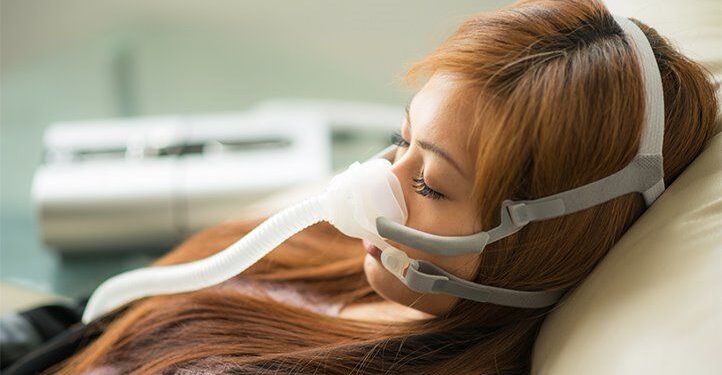Sleep apnea is a common sleep disorder characterized by interrupted breathing during sleep. It can lead to various health issues, including daytime fatigue, decreased cognitive function, and an increased risk of cardiovascular problems. While continuous positive airway pressure (CPAP) therapy is often the primary treatment option for sleep apnea, there is growing evidence suggesting sinus surgery can provide significant benefits for sleep apnea sufferers, particularly those with nasal obstruction. In this article, we will explore the potential benefits of sinus surgery for sleep apnea patients, focusing on the relationship between nasal obstruction and sleep apnea.
Understanding the Link: Nasal Obstruction and Sleep Apnea
Nasal obstruction is a common problem that can contribute to developing or worsening sleep apnea. When the nasal passages are partially or completely blocked, it becomes more difficult for air to flow freely, resulting in increased effort during breathing. This increased effort can lead to negative pressure within the upper airway, causing collapse or narrowing of the airway and ultimately resulting in sleep apnea events.
Various factors, including deviated septum, enlarged turbinates, nasal polyps, or chronic sinusitis, can cause nasal obstruction. Addressing these underlying issues through sinus surgery can potentially alleviate nasal obstruction and improve sleep apnea symptoms.
Can Sinus Surgery Help Sleep Apnea?
Are you unsure if sinus surgery can help with sleep apnea? Sinus surgery, also known as functional endoscopic sinus surgery (FESS), aims to restore proper sinus function by removing obstructions and improving airflow. While sinus surgery is primarily performed to treat chronic sinusitis and other sinus-related conditions, it has shown promise in relieving sleep apnea sufferers with associated nasal obstructions.
Improving Nasal Airflow
One of the key benefits of sinus surgery is its ability to improve nasal airflow. Sinus surgery can widen the nasal passages by addressing structural abnormalities, such as a deviated septum or nasal polyps, allowing for smoother and more efficient airflow. This improvement in nasal airflow can help reduce the negative pressure within the upper airway, minimizing the risk of airway collapse and sleep apnea events.
Reducing Dependence on CPAP Therapy
Continuous positive airway pressure (CPAP) therapy is a common treatment for sleep apnea, involving the use of a mask worn over the nose or mouth to deliver pressurized air. While CPAP therapy can be effective, many patients find it uncomfortable or inconvenient. Sinus surgery offers a potential alternative by addressing the underlying nasal obstruction contributing to sleep apnea. By improving nasal airflow, sinus surgery may reduce the severity of sleep apnea symptoms and, in some cases, even eliminate the need for CPAP therapy altogether.
Enhancing Sleep Quality and Daytime Functioning
Sleep apnea can significantly disrupt sleep patterns and result in poor sleep quality. By addressing nasal obstructions through sinus surgery, individuals with sleep apnea may experience improved sleep quality and better overall sleep. This, in turn, can lead to increased daytime alertness, improved cognitive function, and enhanced quality of life.
Complementary Treatment with Other Sleep Apnea Interventions
Sinus surgery can also serve as a complementary treatment alongside other interventions for sleep apnea. For example, in cases where CPAP therapy is still necessary, sinus surgery can enhance the effectiveness of the treatment by improving nasal breathing and reducing airway resistance. Additionally, sinus surgery can work synergistically with lifestyle modifications, weight loss programs, and oral appliances, further enhancing the overall management of sleep apnea.
The Process of Sinus Surgery for Sleep Apnea
Sinus surgery for sleep apnea involves a comprehensive approach to address the underlying nasal obstructions contributing to the condition. Here’s a breakdown of the process:
-
Evaluation and Diagnosis:
Before considering sinus surgery, a sleep specialist and an otolaryngologist conduct a thorough evaluation. This includes a detailed medical history review, physical examination, and diagnostic sleep studies to assess the severity of sleep apnea and identify any associated nasal obstructions.
-
Preoperative Preparations:
Before the surgery, the patient may undergo additional tests, such as imaging studies or nasal endoscopy, to precisely identify the location and extent of the nasal obstructions. These findings help the surgeon plan the surgical approach and determine the appropriate techniques to be used.
-
Surgical Techniques:
Sinus surgery for sleep apnea is typically performed using minimally invasive endoscopic techniques. The surgeon inserts a thin, flexible tube with a camera (endoscope) into the nasal passages to visualize the sinus cavities and the obstructive structures. Specialized surgical instruments are then used to remove or correct the obstructions, such as a deviated septum, nasal polyps, or enlarged turbinates.
-
Functional Restoration:
The primary goal of sinus surgery is to restore proper sinus function and improve nasal airflow. The surgeon carefully addresses the specific obstructions, ensuring the nasal passages are widened and any blockages removed. This helps create a clear pathway for air to flow freely during sleep, reducing the risk of airway collapse and sleep apnea.
-
Postoperative Care:
After the surgery, patients are closely monitored during the recovery period. The surgeon may prescribe medications to manage pain, control inflammation, and prevent infection. Nasal rinses or sprays may also be recommended to promote healing and maintain sinus health. Regular follow-up visits are scheduled to monitor progress and address any concerns.
The Benefits and Risks of Sinus Surgery for Sleep Apnea
Benefits:
-
Improved nasal airflow: Sinus surgery aims to alleviate nasal obstructions, enhancing nasal airflow and reducing negative pressure within the upper airway.
-
Reduced reliance on CPAP therapy: By addressing underlying nasal obstructions, sinus surgery may reduce the severity of sleep apnea symptoms and, in some cases, eliminate the need for CPAP therapy.
-
Enhanced sleep quality: Sinus surgery can improve sleep quality by minimizing disruptions caused by nasal obstructions, leading to better overall sleep and increased daytime alertness.
-
Complementary treatment: Sinus surgery can work synergistically with other sleep apnea interventions, such as CPAP therapy, lifestyle modifications, or oral appliances, to optimize treatment outcomes.
Risks:
-
General risks associated with surgery: Sinus surgery, like any surgical procedure, carries inherent risks such as bleeding, infection, adverse reactions to anesthesia, or damage to surrounding structures. However, these risks are typically low and can be managed with proper medical care.
-
Variable outcomes: The degree of improvement in sleep apnea symptoms can vary among individuals. While many experience significant relief, others may see more modest improvements or require additional interventions.
-
The potential need for further treatment: In some cases, sinus surgery may not completely resolve sleep apnea symptoms. Additional treatments or therapies may be necessary to achieve optimal results.
Conclusion
Sinus surgery holds promise as a treatment option for sleep apnea sufferers with nasal obstruction. By improving nasal airflow and addressing underlying causes, sinus surgery can potentially alleviate sleep apnea symptoms and enhance overall sleep quality. However, it is important to consult with a qualified healthcare professional specializing in sleep medicine and otolaryngology to determine the suitability of sinus surgery for individual cases.
To learn more about sinus surgery and other treatment options for sleep apnea, visit Texas Sinus & Snoring. Their expert team can provide comprehensive evaluations and personalized recommendations to help you find the most effective solution for your sleep apnea needs. Don’t let sleep apnea hinder your quality of life—take the first step towards better sleep today.








